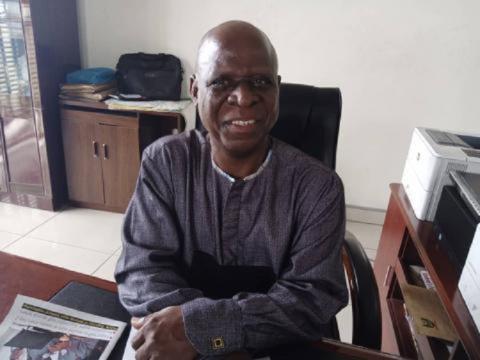
Democratic Dividends and Demographic Dividends of Democracy in Nigeria was the topic of a seminar held by the Olusegun Obasanjo Centre for African Studies (OOCAS) of the National Open University of Nigeria (NOUN).
The lecture was presented both online and in the university’s headquarters in Abuja.
Professor Uduma Oji Uduma, the Deputy Vice-Chancellor (Academics), stood in for Professor Olufemi Peters, the university’s Vice-Chancellor, who was unable to attend due to other commitments.
He started his remarks by thanking the professors for their commitment and labour of love in guiding the course of the university.
The DVC recognised how important they were in developing young minds and training them to lead in their various industries.
He also talked about how higher education supports Nigeria’s democracy. In order to develop an informed populace, underlining the critical role that colleges must play.
Uduma urged educators to help youths develop a solid knowledge of democratic values, critical thinking abilities, and a feeling of social responsibility.
The ex-president and alumnus of NOUN, Chief Olusegun Obasanjo, expressed his pleasure and honour in delivering a goodwill speech to the esteemed audience on topics of significance such as the benefits of democracy in Nigeria.
He also recalled the visit of former Vice-Chancellor, Prof. Abdalla Uba Adamu, who sought his consent for naming a new research centre after him and was requested to be the guest of honour and patron of the centre.
Ever since, Obasanjo added, he has been regularly invited to its events. He expressed pride in the progress made by the centre, noting that their work is significant and impressive, emphasizing on how crucial it is to maintain this level of excellence as their research will remain relevant in years to come.
Professor Peter Okebukola, the immediate-past Pro-Chancellor of NOUN, during his keynote address, delved into the challenges facing democracy in Nigeria today.
Corruption, one of the most significant obstacles, was identified as a pervasive issue that undermines the democratic process.
He highlighted the need for comprehensive anti-corruption measures, including strong institutions, effective enforcement, and public awareness campaigns.
In his introductory remarks, Prof. Eserinune M. Mojaye, the Director of OOCAS, set the tone for the seminar by emphasizing its immense importance and delineating its key objectives with great clarity.
The director conveyed his deep gratitude to all attendees and acknowledged the diverse assembly of distinguished scholars and experts who had gathered together to engage in thoughtful discussions on Nigeria’s democratic challenges and opportunities.
He underscored the crucial need to cultivate a truly inclusive and open discourse that fosters mutual respect for differing viewpoints , which is a vital step towards achieving meaningful progress in the country.
An astute politician and a former adviser to the president, Senator Babafemi Ojudu, asserted, in his address, that Nigeria’s populace and democracy possess a distinctiveness, saying that while citizens in other nations relish in the government’s ability to enhance their freedoms and widen opportunities, Nigerian society entertains different expectations from democratic benefits.
The senator expanded on this notion by highlighting the multitude of hopes that have been ignited by the lure of these seeming advantages. “People expect prompt gratification within a democratic system, as politicians encourage them to aspire for an improved quality of life during electoral campaigns – pledges which are often unfulfilled.”
In his address, Professor Hassan Saliu, a Political Science expert, exhorted the Nigerian government to prioritize the basic necessities of its citizens.
As those who wield power at all levels of governance, they must endeavour to provide the benefits that democracy promises and that other nations from whom we have adopted our current system of governance enjoy, he said.

